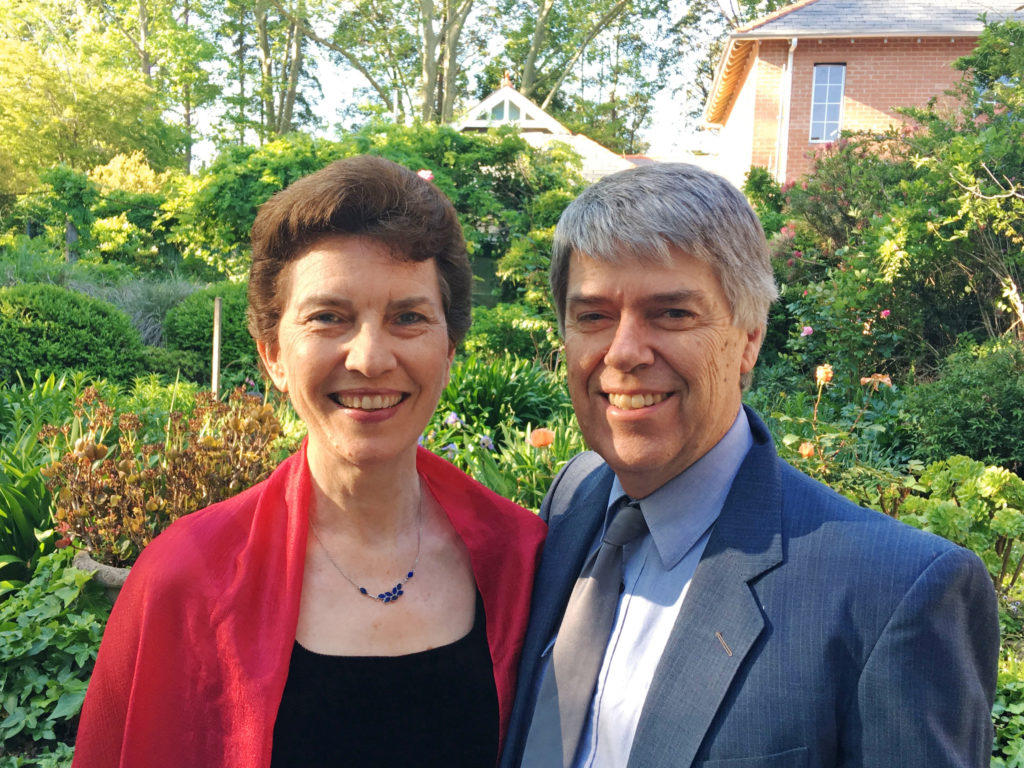About 250 people have signed up to read the Bible in WhatsApp groups in five locations across Latin America since the region went into a coronavirus lockdown on March 20, according to missionary Peter Blowes.
“We’ve had 12 groups in Argentina and eight in Mexico that have started up since the coronavirus [quarantine] with, on average, 15 to 20 people in each group,” says Blowes. “So that’s a pretty good slab of people who have been challenged to read the Bible every day.”
“We pray God’s people will take every opportunity to ‘spread the gospel’ (and not the coronavirus).” – Peter Blowes
It’s another sign that the hardship of the coronavirus pandemic is not hindering the spread of the gospel – in fact, quite the opposite. Blowes, who is based in Buenos Aires with the Church Missionary Society, has observed a significant openness in Argentina “to recognising that neither individuals, nor governments nor whole societies are able to control the current situation.”
“There appears to be a return to belief in God as the sovereign ruler of the world – our lives are in his hands.
“The historic and family connections in Argentina to Italy and Spain have made that particularly evident.
“Most Argentines who have been infected have recently returned from one of these countries, or been in close contact. That is a creating a great openness. We pray that God’s people will take every opportunity to ‘spread the gospel’ (and not the coronavirus).”
Blowes formed his WhatsApp Bible studies after accidentally creating a new group on the messaging platform. After returning to Argentina from Australia in 2015, he and his wife Terry went for a trip around the northeast of the country. They visited old friends as well as new contacts, as a support-raising exercise for their student ministry.
“I had my first smartphone and because everybody here used WhatsApp, I found all these names of people that I knew on WhatsApp,” he recalls.
“What I didn’t realise was I’d accidentally put them all in a group and so the message went to all of them. The thing is, a whole lot of them knew each other, so within seconds I’d reconnected with all these old friends from university days. I had no idea what I’d done and then my telephone’s going red hot saying, ‘Oh, hi, great to catch up’ … and that’s how I discovered WhatsApp groups.”
Blowes has also come to realise the strong bond between this communication tool and an imported method of better understanding God’s word.
During his first missionary term in Argentina in the ’80s and ’90s, Blowes learned the “Swedish method” of Bible study was perfect in such a Catholic culture, where people look to a priest or other religious leaders for answers.

Peter and Terry Blowes
With its focus on finding a “light bulb”, a “question mark” and “an arrow”, in the text, the Swedish method was perfect for modelling the belief that all the answers could be found in the Bible.
“As WhatsApp is almost universal here in Latin America, I worked out … it just fitted perfectly with the Swedish Bible study method,” says Blowes. “I started using it to invite people to read the Bible together and share because, with the Swedish Bible study method, each person contributes.
“Its main strength is that it actually gets people to carefully observe Scripture and they get motivated with what they discover.
“You jump over ‘interpretation’ very quickly to ‘application’, but you do train them in the basic skill of interpretation, which is actually asking questions of the text.
“As those people practise asking questions, they’re also honing their observational ability – and it gives confidence in the text because it’s exciting to look to the text for answers, rather than to an authority.”
“A lot of people are stuck at home so I jumped on the bandwagon with a university where we’re just starting up work.” – Peter Blowes
Before Argentina imposed a strict quarantine on March 20, Blowes was running WhatsApp Bible study groups with about 40 university graduates.
“With the lockdown, around 80 per cent of our people are prohibited from leaving their homes, except to go to the supermarket or pharmacy and only one at a time,” he explained.
“A lot of people are stuck at home so I jumped on the bandwagon with a university where we’re just starting up work.
“[I] basically offered them our five days of the week reading program …
“The people who have been doing it for years just immediately jumped at it and I’ve invited a whole lot of other people who’ve picked up on it.
“The last two weeks, we’ve had 100 people enrolled in five groups reading the pastoral epistles. Next Monday, we’ll start groups reading passages of Isaiah relevant to Easter.”
At the same time, he said a student worker colleague in Mexico had started eight groups, as had another CMS missionary, Julie Field, in the Argentine city of Cordoba.
“So, now, you [ration] the number of activities you’ve got in a day.” – Peter Blowes
Blowes also incorporated a weekly Zoom meeting into his WhatsApp groups, but he noticed that by the middle of the second week people were starting to get Zoom fatigue.
“They were spending all their day on Zoom – virtual church services, virtual training meetings, virtual prayer meetings, Zoom discipleship groups, Zoom everything, so people were sick of having earplugs in,” says Blowes.
“Today the quarantine has been extended for another fortnight, so people who are working from home have realised they’ve got to get over it and get back to work.
“Students have realised they’ve got to get their study groups going or they’re completely wasting their time, losing their status.
“So, now, you [ration] the number of activities you’ve got in a day.”
Blowes thinks he has got the mix right with five Bible readings across the week, with an optional weekly face-to-face gathering on Zoom.
From the strong initial response across Latin America to his WhatsApp groups, Blowes will be happy if he can keep 30 or 40 of them reading their Bible on a daily basis.
“The statistic is that most people do not read their Bible each day across the evangelical population. As people get ‘addicted’ – or maybe it’s better to use the term ‘committed and motivated’ – to read their Bible each day … you’ve made a great leap forward,” he concludes.
Peter Blowes has described how to set up a WhatsApp Bible study group here.
Email This Story
Why not send this to a friend?


